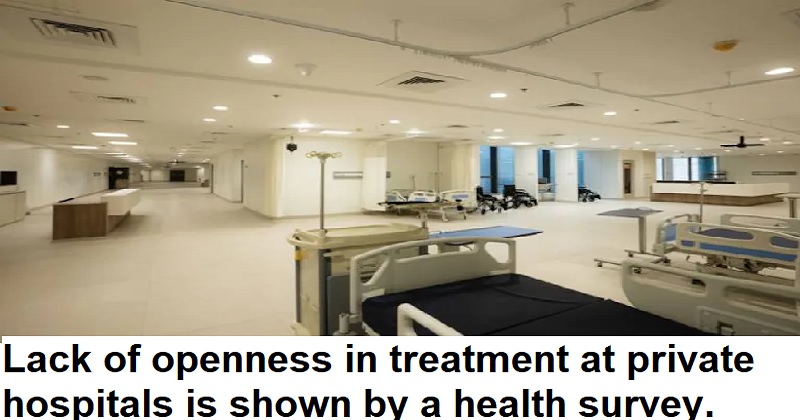
According to a poll carried out in six cities, including Delhi and Chennai, the majority of persons who underwent non-emergency surgeries in private hospitals cited a lack of transparency on treatment costs and difficulty recognising good healthcare service providers.
Surgery Care in India, a study According to a study on patients’ experiences that was done among people between the ages of 20 and 40, patients who were mostly middle-class and employed in the private sector and who had to pay for surgical procedures out of pocket also expressed concern about the lack of health insurance.
Together with the Bureau of Research on Industry and Economic Fundamentals (BRIEF), a research and consulting organization, the Internet and Mobile Association of India (IAMAI), an NGO that represents the digital services sector, and over 400 Indian and multinational corporations, conducted the survey. Due to the coverage’s limitations, it was also discovered that people with health insurance did not use it.
The survey found that ‘patients reported receiving financial assistance from friends and family for the surgical treatment,’ and that ‘patients expressed the need to make surgeries affordable for all economic groups along with different modes of payment such as EMI options, credit systems, or monthly saving plans for elective surgeries.’
For patients from other cities who travel to major metro areas for surgery, the cost of care is doubled because medical costs and boarding/lodging costs add to their financial burden. According to the poll, ‘Such patients sought adequate surgical facilities in non-metro cities.’
280 patients from six cities—Delhi (NCR), Chennai, Mumbai, Bengaluru, Kolkata, and Ahmedabad—who underwent surgery between 2019 and 2022 were questioned for the survey. 31% of the population was female, compared to 69% men.
According to the survey, private healthcare service providers were chosen by 83% of patients, followed by trust hospitals (9%), then government hospitals (eight per cent).

Post Your Comments